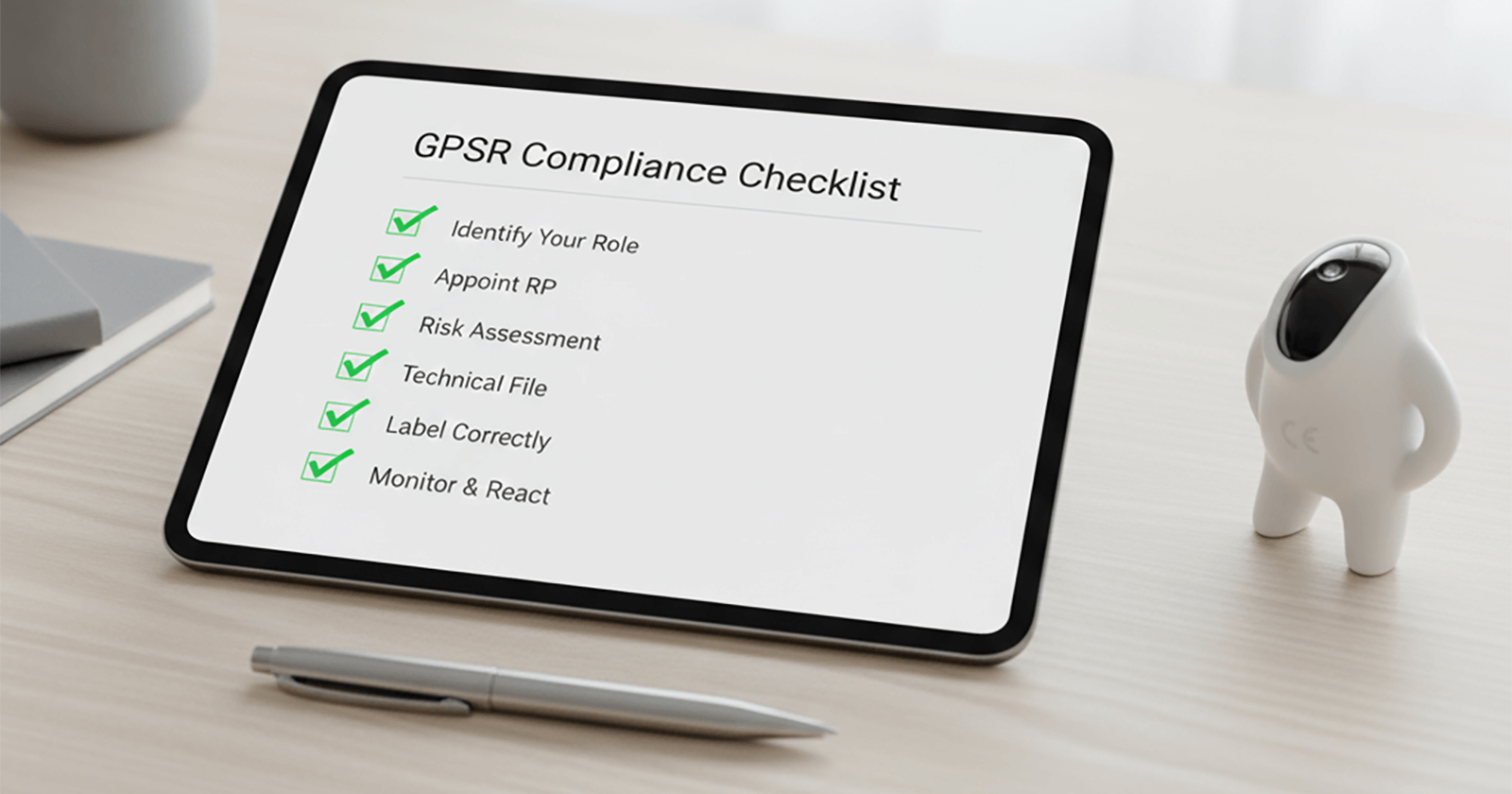The EU’s Digital Product Passport (DPP) is reshaping international trade. For suppliers from the UK and USA, compliance with ESPR (Ecodesign for Sustainable Products Regulation) is now critical to maintain access to the European market. This practical guide explains how to meet EU DPP requirements, streamline your supply chain, and turn compliance into a competitive edge.
Table of Contents
- Why the Digital Product Passport Matters for UK and US Suppliers
- Automate DPP End-to-End Compliance
- Collaborate Closely with European Partners
- Digitize Product Specifications and Documents
- Ensure Supply Chain Traceability and Transparency
- Stay Updated on EU Standards and ESPR Rules
- Turn Your Digital Product Passport into a Market Channel
- Outsource DPP Preparation for Efficiency
- Start with a Pilot Project Before Scaling
- Prepare Packaging and Labels for EU Compliance
- Conclusion: From Obligation to Advantage
Why the Digital Product Passport Matters for UK and US Suppliers
The European Union is introducing the Digital Product Passport (DPP) as part of the ESPR regulation. It’s a digital container for product specifications, safety data, materials, traceability, and certifications — and soon it will be a mandatory requirement for many industries.
For suppliers from the UK and USA, DPP compliance is now a market access issue. Without a DPP, your products could face customs delays, refusals, or lost contracts.
Automate DPP End-to-End Compliance
Handling DPP compliance manually leads to delays and errors. Platforms such as Fluxy.One automate data collection, translation, and EU format validation, ensuring your digital passports stay updated and audit-ready.
💡 Tip: Choose a platform that offers multilingual support and automatic EU regulation updates.
Collaborate Closely with European Partners
European distributors, logistics providers, and importers expect standardized Digital Product Passports. Coordinate your data templates and exports with them to speed up customs, reduce bottlenecks, and strengthen long-term business relationships.
Digitize Product Specifications and Documents
Digitizing your product specs, certificates, declarations of origin, and sustainability documentation makes DPP integration seamless and demonstrates transparency to regulators and buyers alike.
Ensure Supply Chain Traceability and Transparency
The EU is raising the bar on traceability and sustainability. Clear, verifiable data about your products’ composition, origin, and environmental impact builds trust and positions you competitively in tenders.
Stay Updated on EU Standards and ESPR Rules
ESPR and DPP requirements are evolving. Instead of tracking manually, use a platform with automatic regulatory updates, reducing the burden of internal compliance checks.
Turn Your Digital Product Passport into a Market Channel
Modern Digital Product Passports are interactive assets. Linking a QR code on your product to its DPP lets you collect customer feedback, push product updates, and improve after-sales support.
💡 Pro move: Treat your DPP as a mini-website optimized for search engines and multiple languages.
Outsource DPP Preparation for Efficiency
If you have a large or complex product catalog, outsourcing DPP creation and validation saves time, reduces errors, and frees your team to focus on growth.
Start with a Pilot Project Before Scaling
Test your DPP implementation on one product line. Collect feedback, refine processes, and then scale up across your catalog to minimize risk and accelerate adoption.
Prepare Packaging and Labels for EU Compliance
Ensure your packaging and labels meet new EU requirements, including correct QR codes, multilingual versions, and updated iconography. Acting early prevents costly last-minute changes.
Conclusion: From Obligation to Advantage
For UK and US suppliers, the Digital Product Passport is not just a regulatory hurdle — it’s an opportunity. By embracing DPP, companies can secure market access, build trust with European buyers, and leverage compliance as a competitive advantage.
Ready to Secure Your EU Market Access?
Don’t wait until the ESPR deadlines catch up with you. Future-proof your products, build trust with European partners, and turn compliance into a growth advantage.
👉 Start your Digital Product Passport journey with Fluxy.One today — Get Your Quote
FAQ:
Q1: Do UK and US companies really need a Digital Product Passport to sell in the EU?
Yes. Without a DPP, your products may be delayed at customs, face rejection, or risk losing contracts with EU importers.
Q2: Can SMEs handle DPP compliance without large compliance teams?
Yes. Platforms like Fluxy.One make compliance scalable with automation, multilingual support, and built-in EU regulatory updates.
Q3: How fast can a supplier prepare a DPP?
With a pilot project and automation, a Digital Product Passport can be generated in days, not months.
Q4: Beyond compliance, what’s the real benefit of DPP?
A DPP doubles as a marketing and customer trust tool, turning transparency into a competitive edge.











